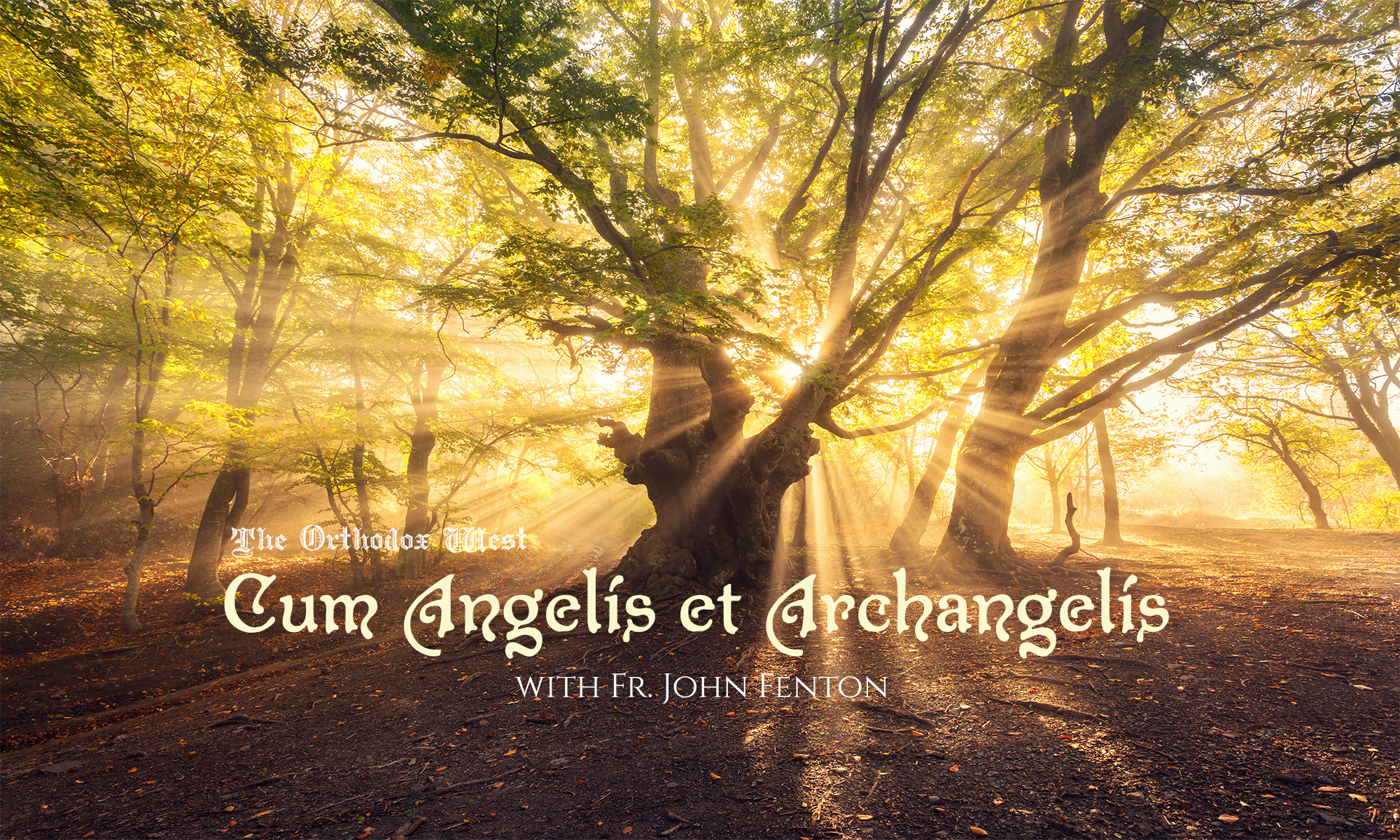Honoring our Parents and loved ones means to support them, to help them in time of need and, most importantly, to pray for them. That duty, especially toward our parents, is enjoined upon us by God in the Ten Commandments.
Keeping Distance
When the Lord God designed His temple, it had two rooms: an outer room and an inner room. The outer room was called the “Holy Place.” It had candlesticks, a table for the bread presented to God, and an altar of incense when the sacrifice was offered. The inner room was the heart of the temple. It was a separate room which only one person could enter, once a year. That room was called the “Holy of Holies” or the “Most Holy Place.” It held the Ark of the Covenant, which contained the types of Christ: the Word of God in the Ten Commandments; the Bread from Heaven in the manna; and the symbol of the Virgin Birth in the walking staff that miraculously flowered.
Two Things as One
At our best we tend to divide our life in God into two parts: worshipping God and serving others. For a time, you can worship; and for another time, we can help and serve. But we can’t do both; and we can’t specialize in both, because they are two very different things.
Not Ours, But For Us
During the Mass, we say (or sing) together these words: “Who for us men and for our salvation, came down from heaven.” Those words are, of course, from the Nicene Creed—the statement that summarizes the basics of the Orthodox Faith.
The Bishop Presents Christ
What an honor it iswhenever a Bishop visits his parish. For the Bishop is the living icon of Jesus Christ the high priest. As such, he re-presents Christ; that is, the Bishop repeatedly makes Christ present.
The Mass Attracts
Consider this question: how did the church grow so quickly in the earliest days? Without a doubt, 3000 people were attracted by the miracle of tongues when St Peter and the other apostles spoke outside the temple on Pentecost, 50 days after Jesus’ resurrection. And while preaching on the streets continued, it wasn’t street preaching that produced the steady commitment and the sustained spiritual growth of those 3000 and the church-family that they formed.
The Mass Gives Mercy
Of all the words said and sung during Holy Mass, one of the most often used is the word “mercy.”
At the beginning of the Mass when we confess our sins, we pray Almighty God to have mercy on us, forgive us our sins, and bring us to everlasting life. During the Kyrie, we plead with Our Lord nine times to have mercy upon us. When we sing the Gloria in Excelsis, we ask the Lamb of God, the Son of the Father who takes away the sin of the world and sits at the right hand of the Father, to have mercy upon us. During the Collect, we often beg Our Lord to hear and grant our prayer based on His mercy. Right before we receive the Lord’s Body and Blood, we again pray the Lamb of God who takes away the sin of the world to have mercy upon us. And in one of the prayers before approaching the Altar, we beseech Our Lord Jesus Christ to let our eating and drinking not be to our judgment, but of His mercy, to let the Blessed Sacrament preserve us in body and soul and show forth within us His healing. Continue reading “The Mass Gives Mercy”
The Mass Presents Christ
As we stand in heaven during the Mass, Christ is in our midst. He is in our midst mentally, as we think about, contemplate, and meditate on His saving work and His sacred gifts. He is in our midst emotionally, as our hearts are uplifted due to His loving-kindness and many mercies which we certainly do not deserve. He is in our midst spiritually, as the Holy Spirit draws us slowly, gently, kindly, into His soothing and invigorating embrace. But most of all, Christ is in our midst physically. He is really present, standing before us not figuratively but literally, not symbolically but actually, not metaphorically but truly. Continue reading “The Mass Presents Christ”
Re-Ordering Life
The ordination of men as priests or deacons can occur at any time. In the Western tradition, the Ember Days of Advent, Lent, September—and most especially the week of Pentecost—are designated for conferring the Sacrament of Holy Orders.
The Mass is from God
The Mass is not a human construct, fashioned according to our notions of pleasing worship. Rather, the Mass is divinely designed, fashioned by God to the smallest detail, including the style and shape of the vestments. This means that the Divine Liturgy is not divine because it is about God or in God’s presence; rather, the Mass is divine because it comes from God.
